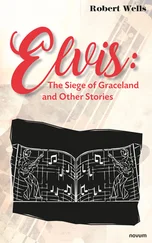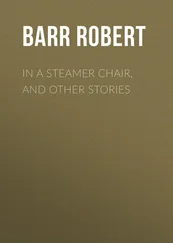Robert Heinlein - The Unpleasant Profession Of Jonathan Hoag And Other Stories
Здесь есть возможность читать онлайн «Robert Heinlein - The Unpleasant Profession Of Jonathan Hoag And Other Stories» весь текст электронной книги совершенно бесплатно (целиком полную версию без сокращений). В некоторых случаях можно слушать аудио, скачать через торрент в формате fb2 и присутствует краткое содержание. Жанр: Фантастика и фэнтези, на английском языке. Описание произведения, (предисловие) а так же отзывы посетителей доступны на портале библиотеки ЛибКат.
- Название:The Unpleasant Profession Of Jonathan Hoag And Other Stories
- Автор:
- Жанр:
- Год:неизвестен
- ISBN:нет данных
- Рейтинг книги:3 / 5. Голосов: 1
-
Избранное:Добавить в избранное
- Отзывы:
-
Ваша оценка:
- 60
- 1
- 2
- 3
- 4
- 5
The Unpleasant Profession Of Jonathan Hoag And Other Stories: краткое содержание, описание и аннотация
Предлагаем к чтению аннотацию, описание, краткое содержание или предисловие (зависит от того, что написал сам автор книги «The Unpleasant Profession Of Jonathan Hoag And Other Stories»). Если вы не нашли необходимую информацию о книге — напишите в комментариях, мы постараемся отыскать её.
The Unpleasant Profession Of Jonathan Hoag And Other Stories — читать онлайн бесплатно полную книгу (весь текст) целиком
Ниже представлен текст книги, разбитый по страницам. Система сохранения места последней прочитанной страницы, позволяет с удобством читать онлайн бесплатно книгу «The Unpleasant Profession Of Jonathan Hoag And Other Stories», без необходимости каждый раз заново искать на чём Вы остановились. Поставьте закладку, и сможете в любой момент перейти на страницу, на которой закончили чтение.
Интервал:
Закладка:
The big cop hesitated. "Don’t do what?"
"Don’t do anything. The FBI are on their way now—and you’re already implicated. Don’t make t any worse."
Pete pointed to the two hoodlums; Clarence was sitting on one and resting the spike of the ax against the back of the other. "Those birds have already sung. This town is about to fall apart. If you hurry, you might be able to get a plane for Mexico."
Dumbrosky looked at him. "Wise guy," he said doubtfully.
"Ask them. They confessed."
One of the hoods raised his head. "We was threatened," he announced. "Take ’em in, lieutenant. They assaulted us."
"Go ahead," Pete said cheerfully. "Take us all in—together. Then you won’t be able to lose that pair before the FBI can question them. Maybe you can cop a plea."
"Now?" asked Clarence.
Dumbrosky swung around. "Put that ax down!"
"Do as he says, Clarence. Get your camera ready to get a picture as the G-men arrive."
"You didn’t send for no G-men."
"Look behind you!"
A dark blue sedan slid quietly to a stop and four lean, brisk men got out. The first of them said, "Is there someone here named Peter Perkins?"
"Me," said Pete. "Do you mind if I kiss you?"
It was after dark but the parking lot was crowded and noisy. A stand for the new Mayor and distinguished visitors had been erected on one side, opposite it was a bandstand; across the front was a large illuminated sign: HOME OF KITTEN—HONORARY CITIZEN OF OUR FAIR CITY.
In the fenced-off circle in the middle Kitten herself bounced and spun and swayed and danced. Pete stood on one side of the circle with Pappy opposite him; at four-foot intervals around it children were posted. "All set?" called out Pete.
"All set," answered Pappy. Together, Pete, Pappy and the kids started throwing serpentine into the ring. Kitten swooped, gathered the ribbons up and wrapped them around herself.
"Confetti!" yelled Pete. Each of the kids dumped a sackful toward the whirlwind—little of it reached the ground.
"Balloons!" yelled Pete. "Lights!" Each of the children started blowing up toy balloons; each had a dozen different colors. As fast as they were inflated they fed them to Kitten. Floodlights and searchlights came on; Kitten was transformed into a fountain of boiling, bubbling color, several stories high.
"Now?" said Clarence.
"Now!"
"AND HE BUILT A CROOKED HOUSE"
Americans are considered crazy anywhere in the world.
They will usually concede a basis for the accusation but point to California as the focus of the infection. Californians stoutly maintain that their bad reputation is derived solely from the acts of the inhabitants of Los Angeles County. Angelenos will, when pressed, admit the charge but explain hastily, "It’s Hollywood. It’s not our fault—we didn’t ask for it; Hollywood just grew."
The people in Hollywood don’t care; they glory in it. If you are interested, they will drive you up Laurel Canyon "—where we keep the violent cases." The Canyonites—the brown-legged women, the trunks-clad men constantly busy building and rebuilding their slaphappy unfinished houses— regard with faint contempt the dull creatures who live down in the flats, and treasure in their hearts the secret knowledge that they, and only they, know how to live.
Lookout Mountain Avenue is the name of a side canyon which twists up from Laurel Canyon. The other Canyonites don’t like to have it mentioned; after all, one must draw the line somewhere!
High up on Lookout Mountain at number 8775, across the street from the Hermit—the original Hermit of Hollywood—lived Quintus Teal, graduate architect.
Even the architecture of southern California is different. Hot dogs are sold from a structure built like and designated "The Pup." Ice cream cones come from a giant stucco ice cream cone, and neon proclaims "Get the Chili Bowl Habit!" from the roofs of buildings which are indisputably chili bowls. Gasoline, oil, and free road maps are dispensed beneath the wings of tri-motored transport planes, while the certified rest rooms, inspected hourly for your comfort, are located in the cabin of the plane itself. These things may surprise, or amuse, the tourist, but the local residents, who walk bareheaded in the famous California noonday sun, take them as a matter of course.
Quintus Teal regarded the efforts of his colleagues in architecture as faint-hearted, fumbling, and timid.
"What is a house?" Teal demanded of his friend, Homer Bailey.
"Well—" Bailey admitted cautiously, "speaking in broad terms, I’ve always regarded a house as a gadget to keep off the rain."
"Nuts! You’re as bad as the rest of them."
"I didn’t say the definition was complete—"
"Complete! It isn’t even in the right direction. From that point of view we might just as well be squatting in caves. But I don’t blame you," Teal went on magnanimously, "you’re no worse than the lugs you find practicing architecture. Even the Moderns—all they’ve done is to abandon the Wedding Cake School in favor of the Service Station School, chucked away the gingerbread and slapped on some chromium, but at heart they are as conservative and traditional as a county courthouse. Neutra! Schindler! What have those bums got? What’s Frank Lloyd Wright got that I haven’t got?"
"Commissions," his friend answered succinctly.
"Huh? Wha’ d’ju say?" Teal stumbled slightly in his flow of words, did a slight double take, and recovered himself. "Commissions. Correct. And why? Because I don’t think of a house as an upholstered cave; I think of it as a machine for living, a vital process, a live dynamic thing, changing with the mood of the dweller—not a dead, static, oversized coffin. Why should we be held down by the frozen concepts of our ancestors? Any fool with a little smattering of descriptive geometry can design a house in the ordinary way. Is the static geometry of Euclid the only mathematics? Are we to ompletely disregard the Picard-Vessiot theory? How about modular systems?—to say nothing of the rich suggestions of stereochemistry. Isn’t there a place in architecture for transformation, for homomorphology, for actional structures?"
"Blessed if I know," answered Bailey. "You might just as well be talking about the fourth dimension for all it means to me."
"And why not? Why should we limit ourselves to the— Say!" He interrupted himself and stared into distances. "Homer, I think you’ve really got something. After all, why not? Think of the infinite richness of articulation and relationship in four dimensions. What a house, what a house—" He stood quite still, his pale bulging eyes blinking thoughtfully.
Bailey reached up and shook his arm. "Snap out of it. What the hell are you talking about, four dimensions? Time is the fourth dimension; you can’t drive nails into that."
Teal shrugged him off. "Sure. Sure. Time is a fourth dimension, but I’m thinking about a fourth spatial dimension, like length, breadth and thickness. For economy of materials and convenience of arrangement you couldn’t beat it. To say nothing of the saving of ground space—you could put an eight-room house on the land now occupied by a one-room house. Like a tesseract—"
"What’s a tesseract?"
"Didn’t you go to school? A tesseract is a hypercube, a square figure with four dimensions to it, like a cube has three, and a square has two. Here, I’ll show you." Teal dashed out into the kitchen of his apartment and returned with a box of toothpicks which he spilled on the table between them, brushing glasses and a nearly empty Holland gin bottle carelessly aside. "I’ll need some plasticine. I had some around here last week." He burrowed into a drawer of the littered desk which crowded one corner of his dining room and emerged with a lump of oily sculptor’s clay. "Here’s some."
Читать дальшеИнтервал:
Закладка:
Похожие книги на «The Unpleasant Profession Of Jonathan Hoag And Other Stories»
Представляем Вашему вниманию похожие книги на «The Unpleasant Profession Of Jonathan Hoag And Other Stories» списком для выбора. Мы отобрали схожую по названию и смыслу литературу в надежде предоставить читателям больше вариантов отыскать новые, интересные, ещё непрочитанные произведения.
Обсуждение, отзывы о книге «The Unpleasant Profession Of Jonathan Hoag And Other Stories» и просто собственные мнения читателей. Оставьте ваши комментарии, напишите, что Вы думаете о произведении, его смысле или главных героях. Укажите что конкретно понравилось, а что нет, и почему Вы так считаете.











